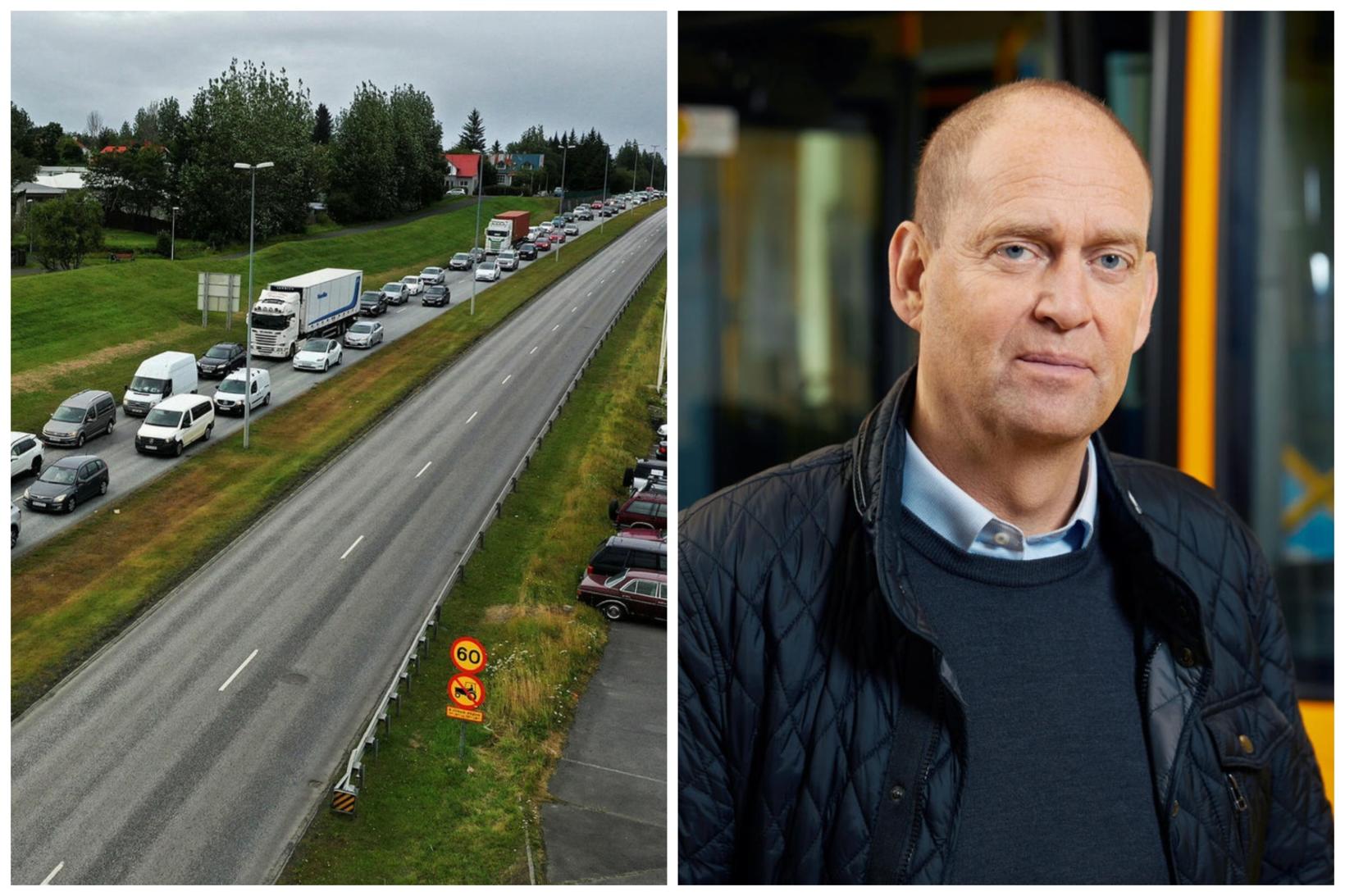Fewer private cars on the roads today
Jóhannes Svavar Rúnarsson, managing director of Strætó, says that the company’s bus drivers have noticed fewer private cars on the streets. Composite image/mbl.is/Eggert/Strætó
Many people used Strætó’s free of charge service this morning, and Jóhannes Svavar Rúnarsson, managing director of Strætó, says that the company’s bus drivers have noticed fewer private cars on the streets.
The car free day is today, and for this reason, buses are free in the capital area and by rural bus. People are encouraged to leave their personal car at home and use a variety of environmentally friendly modes of transportation. The day is part of the European Transport Week, which started on Saturday.
Strætó encourage people to consider the possibilities of traveling between the capital area and the country by bus. As more people use the buses, traffic lightens and the bus system becomes more reliable.
“People are either working at home or taking advantage of the good weather and cycling,” says Rúnarsson, who is not counting whether the number of passengers in the buses has been higher today than on other days.
He says the goal of the day is to get people to look at the possibilities of traveling around the capital area and the whole country by bus.
Expedited fees known in many countries
When asked, Rúnarsson says he was a spokesperson for expedited fees, which are part of the capital’s transportation treaty. An accelerated fee is a fee taken from a particular trip and the fees are used to accelerate projects that might otherwise take longer.
Traffic and expedited fees were scheduled to be levied in the capital area in 2022, but none of those plans have come to fruition.
“It’s part of trying to get people to avoid driving their personal car downtown. That way both pollution and noise is decreased and thus people are encouraged to use other means of transportation,” he says, explaining that “these fees are known in many countries and are becoming more common.”
"We’re pretty punctual"
What do you have to say about criticism of Strætó regarding punctuality?
“I can understand that at this point in time, when the bus is stuck in traffic, it cannot adhere as well to the timetable. That is why these special lanes are important, which are naturally in several places and there are future ideas for them to be widely distributed.
We’re pretty punctual. It’s just that,” he says adding that consumer concerns are extremely important.
However, he points out that as more people start to use Strætó’s, traffic is reduced and it becomes much easier to adhere to the timetable. This will help to provide more reliability in the Strætó transportational system, which Rúnarsson says is very important.





/frimg/1/57/87/1578747.jpg)



